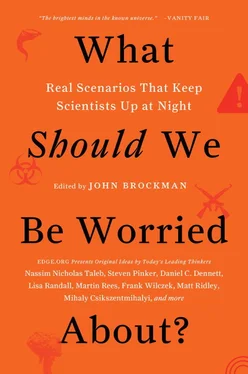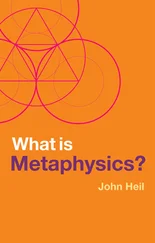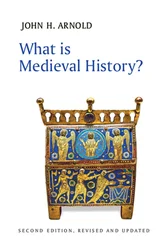6. Other conservative religions, such as the Roman Catholic Church, indirectly encourage large families by forbidding most means of family planning.
7. Larger families are likely to be poorer, and poverty triggers earlier puberty and earlier reproduction (a good deal of recent research suggests that this phenomenon is linked to biological life-history patterns and unfolds independent of any normative inputs from religions or local culture). These factors combine to ensure that poorer, less-educated young people are more likely to stay that way and produce the next (slightly larger) generation of poor, less-educated young people.
8. Well-educated intellectual types have smaller families these days, and because highly educated women wait longer to begin reproduction, they often miss their fertile window and have no children.
During the 20th century, IQ tended to generally increase (a phenomenon dubbed the Flynn Effect, after the researcher who discovered it). Various hypotheses have been advanced for this phenomenon, including better education and smaller families. But the factors I listed above could set a course in the opposite direction, flip-flopping the Flynn effect.
And there is another potential ironic twist. If the population of less-educated, religiously conservative individuals increases and continues to vote as they have been voting, funding for education and scientific research is also likely to decrease. A less-educated population could contribute not only to an upward shift in population size but also to a downward economic spiral, for reasons linked to some fascinating findings by Heiner Rindermann and James Thompson. These researchers examined the economic consequences of variations in IQ across ninety countries, analyzing the average IQ of each country’s population as a whole, as well as the average IQ of the “intellectual elite” (the top 5 percent of the population), and the lowest 5 percent of the population. Just as countries differ in their distribution of wealth, they also differ in their distribution of IQ. Canada and the United States, for example, are identical in the average IQ of their smartest people (120), but the lowest 5 percent of Canadians are 5 points smarter than the lowest 5 percent of Americans (80 vs. 75). [e] “Cognitive Capitalism: The Effect of Cognitive Ability on Wealth, As Mediated Through Scientific Achievement and Economic Freedom,” Psychol. Sci , 22:6, 754-63 (2011).
Rindermann and Thompson’s analyses led them to this conclusion: Having a high-IQ intellectual class—lots of people with accomplishments in science, math, technology, and engineering—translates directly into more wealth for a country. To put it in purely economic terms, an increase of one IQ point among average citizens increases a country’s average GDP by $229, whereas an increase of one IQ point in the intellectual elite is worth $468.
A high-performing intellectual class is also associated with better-developed and freer economic and political institutions, which in turn encourages more development of the country’s “cognitive resources,” in what Rindermann and Thompson call a “virtuous cycle.” The free climate becomes a catalyst for creative productivity among the high-IQ innovators, who are thus liberated to rethink older ways of doing things and expand into new scientific arenas. This in turn inspires new technologies as well as newer and more efficient ways of doing business and a better climate in which to grow the next generation of innovators.
So to the extent that a growing anti-intellectual portion of the population manages to cut funds for education and for scientific research, they effectively sabotage the system that feeds what has been the world’s most productive “human capital” machine. According to my colleagues from other countries, the American educational system has an unimpressive reputation up through the university level but is regarded as the top of the heap when it comes to training at the highest level—with people around the world desperate to come to the U.S. to get the best PhD training on the planet. Thus, slashing funding for higher education and scientific research (much of which is conducted by our best PhD students at major universities) seems a policy destined to undermine the country’s economic health in long-lasting ways.
Policies that undercut the intellectual upper crust therefore undermine economic growth and indirectly contribute to the economic threat that inspires poorer, less-educated people to reproduce earlier and more prolifically.
THE DISCONNECT BETWEEN NEWS AND UNDERSTANDING
GAVIN SCHMIDT
Climatologist, NASA’s Goddard Institute for Space Studies
We are surrounded by complexity. Issues demanding our attention—health-care reform, climate change, the Arab Spring—have a historical context, multiple viewpoints, clashes of diverse values, and a bewildering set of players with their own agendas. The news provides a source for what’s happening right now: voting results, who made what speech, how many people died, etc. While imperfect, the news industry mostly delivers on its duty to provide information on what’s “new,” and with the advent of social media platforms and aggregators like Google News, it has never been easier to stay up-to-date.
But much of what we need to understand a situation is not “new.” We need a deeper knowledge of the context to inform our understanding of why the new events have occurred. The situation in Afghanistan makes no sense without an appreciation of the culture and history of the region. The latest warning of a future climate effect makes no sense unless you understand how we know anything about how the climate operates and how it has already changed. Understanding the forces driving the Arab Spring requires a background in the breakup of the Ottoman Empire and the responses to the Colonial adventurism that followed. Unfortunately, this context is not in the least bit newsworthy.
The gap between new and old is widening, and that should be profoundly worrying. It’s as if we had a populace that was well informed about the score of a game but knew nothing about the rules and, worse, had no inclination to find credible sources to explain them. Public discussions often devolve to mere tribalism; it is far easier to base decisions on who supports what than to delve into an issue yourself. Any efforts to make it easier to access depth and context must therefore be applauded and extended. New online tools can be developed to scaffold information by providing entry points appropriate for any level of knowledge. Context buttons alongside online searches could direct the interested to the background information. But unless we start collectively worrying about this, nothing will change, and our society’s ability to deal with complexity in a rational way will continue to decline.
SUPER-AIS WON’T RULE THE WORLD (UNLESS THEY GET CULTURE FIRST)
ANDY CLARK
Philosopher, chair in logic & metaphysics, University of Edinburgh; author, Supersizing the Mind
The last decades have seen fantastic advances in machine learning and robotics. These are now coupled with the availability of huge and varied databases, staggering memory capacities, and ever faster and funkier processors. But despite all that, we should not fear that our Artificial Intelligences will soon match and then rapidly outpace human understanding, turning us into their slaves, toys, pets, or puppets.
For we humans benefit from one gigantic and currently human-specific advantage: the huge yet nearly invisible mass of gradually accrued cultural practices and innovations that tweak and pummel the inputs that human brains receive. Those gradually accrued practices are, crucially, delicately keyed to the many initial biases—including especially biases for sociality, play, and exploration—installed by the much slower processes of biological evolution. In this way, a slowly accumulated mass of well-matched cultural practices and innovations ratchets up human understanding.
Читать дальше












